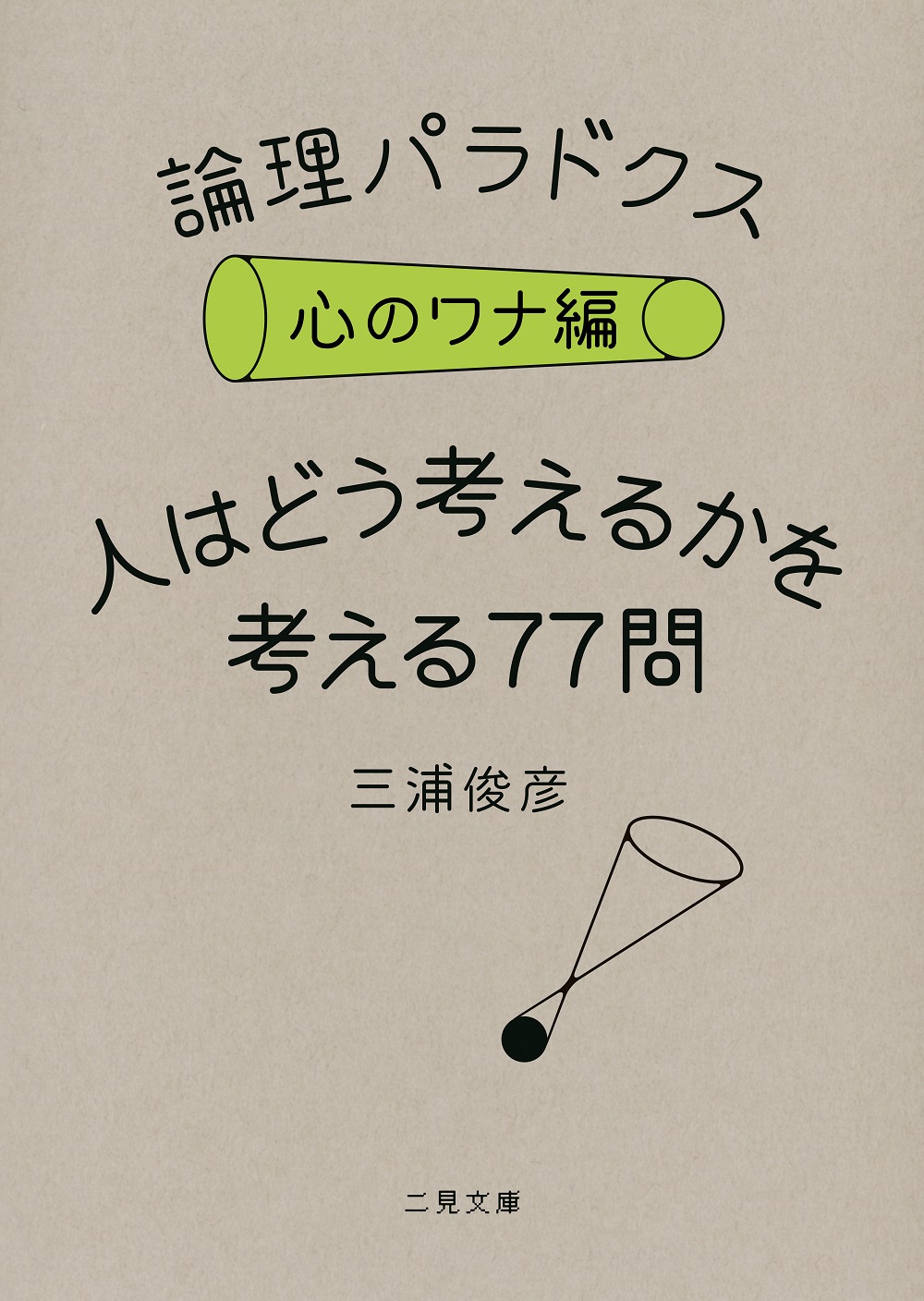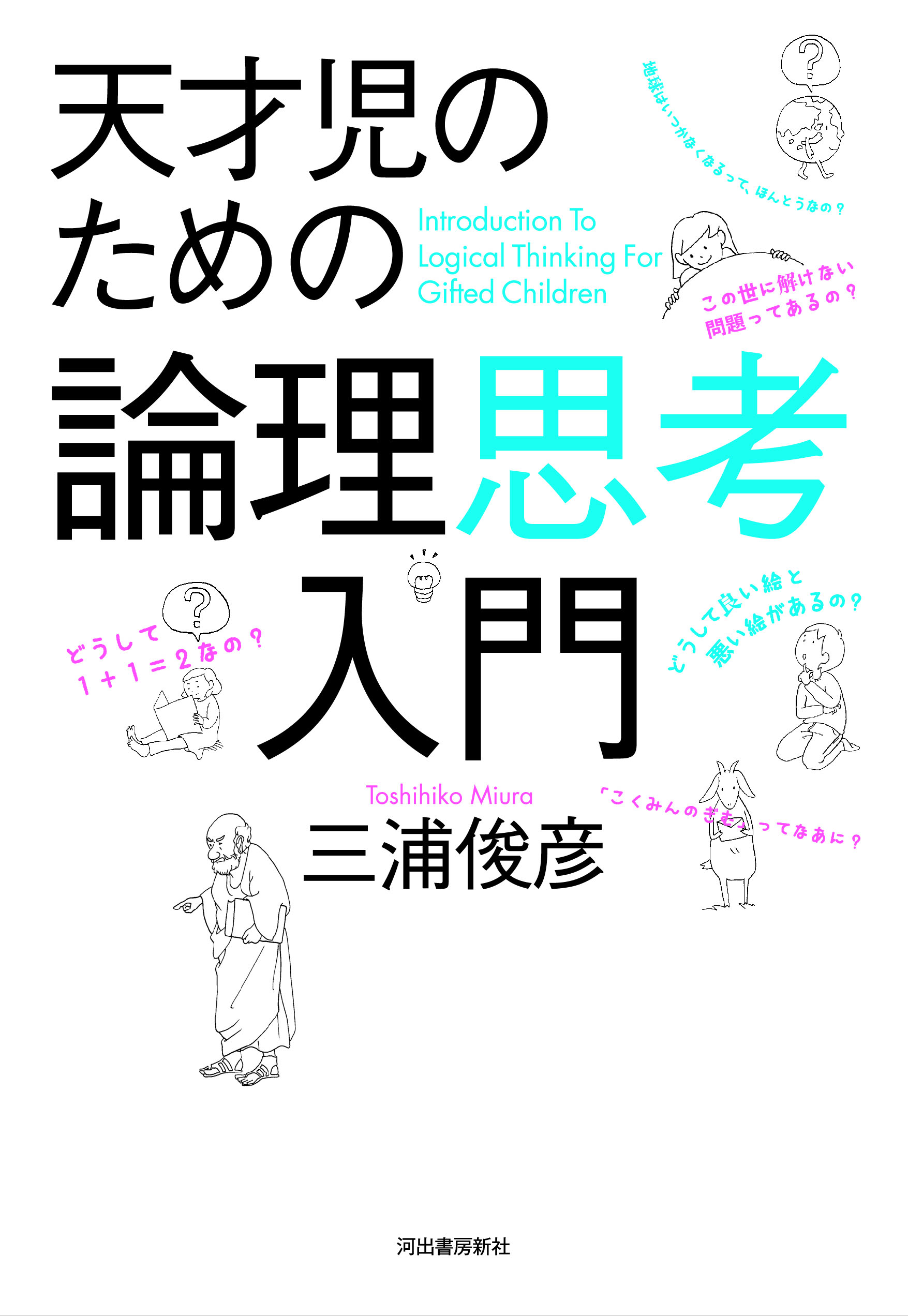
Title
Ronri-Paradokusu / Kachinokori-hen (Logical paradox: Mental Traps - 88 Problems to Train Your Argumentation Skills)
Size
paperback
Language
Japanese
Released
November 01, 2017
ISBN
9784576171654
Published by
Futami Shobo Publishing
Book Info
See Book Availability at Library
Japanese Page
A “paradox” is a puzzle that brings a hazardous mental stimulation. It can be said that there are two main types of paradoxes. The first type is an intellectual illusion that is caused by the mechanics of human intuition. The other type is serious trouble, such as in mathematics, empirical science, or philosophy, where multiple propositions that should be correct turn out to be incompatible. Focusing on the first type of paradox, I explored the question, “What is the human mind?” in Logical Paradox: Mental Traps - 77 Problems for thinking about how people think, which was previously introduced here at UTokyo BiblioPlaza. In this book, which is a sister volume to Logical Paradox: Mental Traps, I discuss the second type, focusing on cases in which language, logic, and academic systems (rather than the individual mind) are the issues.
From famous problems, such as “Achilles and Tortoise” and “Russell’s Paradox,” to confusion related to the basic concepts used in the argument, such as “contraposition,” “randomness,” and “truth,” I briefly introduce various cases, relating them to each other and, as far as possible, suggesting my own solutions. This is because many of the problems that I present in this book do not have unanimity of opinion in the academic community in terms of their solutions.
Many of the paradoxes are expressed in the form of “arguments,” or “operations that draw conclusions from premises.” A “valid” argument is one whose form shows that it is impossible for the premises to be true and the conclusion be false. Regardless of whether the premises are actually true or not, if all of them are true, then the conclusion must be true too. The following argument is an example.
Premise 1: All humans are immortal.
Premise 2: Socrates is a human.
Conclusion: Socrates is immortal.
In other words, if Premise 1 and Premise 2 are both true, then the conclusion is guaranteed to be true.
Now, let me introduce a paradox on the subject of this notion of a “valid argument.” This is Question 39 in this book. Consider the following Argument R.
Premise: Argument R is valid.
Conclusion: God exists.
Is Argument R valid? If the premise that says Argument R is valid is true, that is, if the premise is true and Argument R is valid, then, the conclusion is guaranteed to be true according to the meaning of “valid.” In other words, if the premise is true, then, the conclusion is necessarily true. This means that Argument R is valid.
Now, do you notice something interesting here? It turns out that Argument R is, indeed, valid, but that is exactly what the premise states. The premise is true. Yes, Argument R is valid and the premise is true. This means that the conclusion must be true.
We have proved the existence of God!
Of course, you would have felt that Argument R was a sophistry. Where was the error, then? Argument R seems to be an artificial quibble, but, to avoid falling for more natural and mundane tricks, one has to be able to properly debunk an “unnatural” fraud such as Argument R.
It is harder than you might think to reasonably state why Argument R is a “bad argument.” Stating “reasonably” (or logically) is the basis of academia. Try to do so before reading the Answer section of this book.
(Written by MIURA Toshihiko, Professor, Graduate School of Humanities and Sociology / 2020)



 Find a book
Find a book




